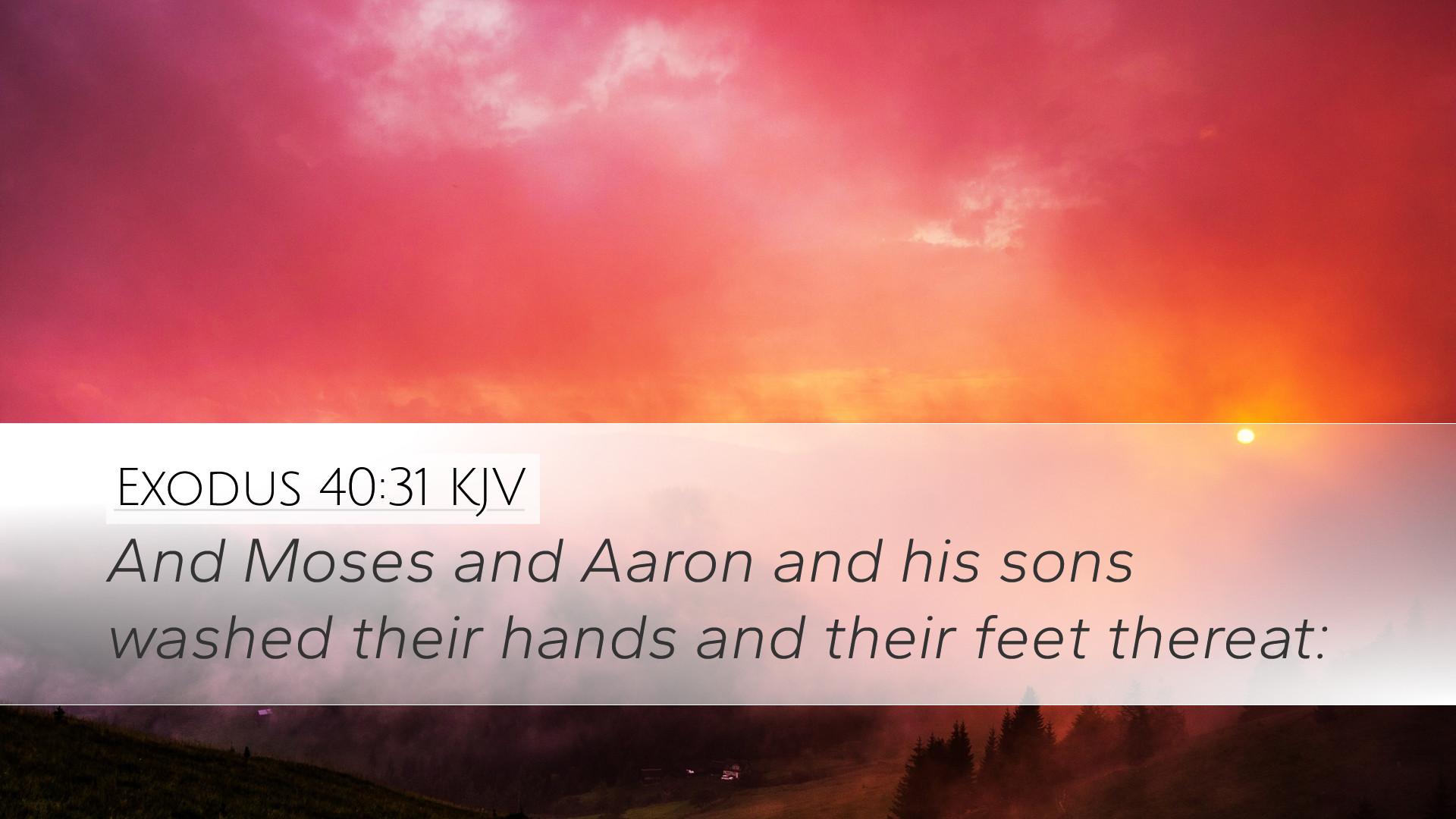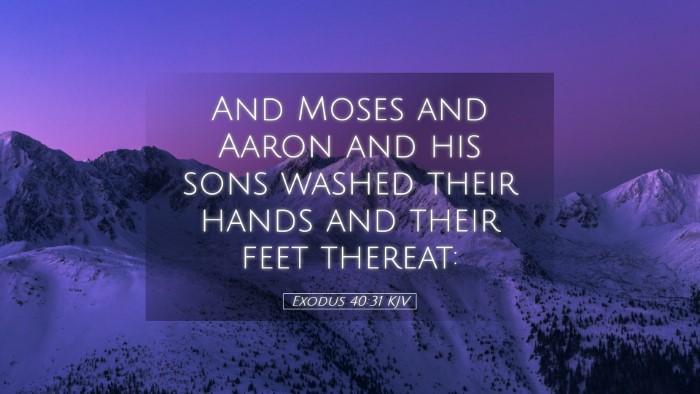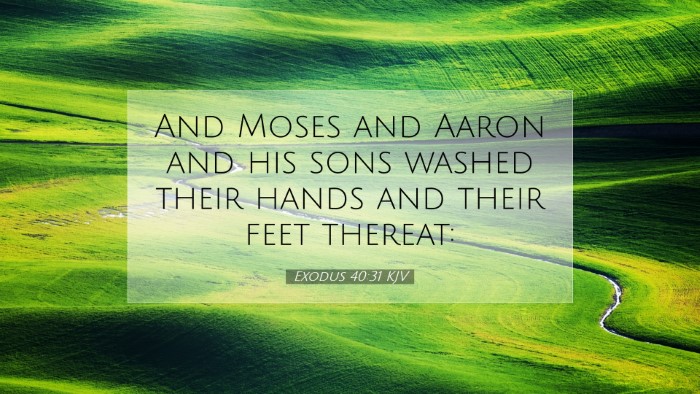Commentary on Exodus 40:31
Verse: “And Moses and Aaron and his sons washed their hands and their feet there;”
Introduction
Exodus 40:31 serves as a significant culmination of the instructions given to Moses regarding the construction and consecration of the Tabernacle. This verse encapsulates the theme of purity and the preparation necessary for approaching God, reflecting an essential principle in biblical worship.
Moses and Aaron's Actions
The first part of the verse emphasizes the act of washing, which is critical for understanding the broader concept of holiness in the Levitical priesthood. Both Matthew Henry and Albert Barnes note that this washing symbolizes more than mere physical cleanliness; it signifies a spiritual readiness to serve before God.
- Matthew Henry highlights the necessity of cleansing as a prerequisite to engaging in priestly duties, illustrating that the act of washing hands and feet is symbolic of moral and spiritual purity.
- Albert Barnes elaborates on the ritual aspect, suggesting that this command underlines the importance of approaching God without the contamination of sin, reflecting the need for internal spiritual hygiene.
The Significance of Hands and Feet
In biblical symbolism, hands often represent actions and works, while feet symbolize one's walk and conduct. Adam Clarke offers insight into why these particular body parts are highlighted in this cleansing ritual. He states:
- Washing the hands signifies the purification of actions—the deeds performed in the service of God.
- Washing the feet signifies the purification of one’s path—that all conduct should be holy and pleasing unto the Lord.
This dual aspect of purification is foundational in understanding the holistic nature of worship, where both actions and lifestyle must reflect God’s holiness.
The Context of Worship and Service
The context surrounding this verse is essential for grasping its implications. The construction of the Tabernacle and the duties of the priests were a divine mandate, indicating that worship is a participatory act that acknowledges God's authority. Matthew Henry points out:
- The adherence to God-given instructions showcases the need for obedience in worship, as it reflects the relationship between Creator and creation.
- This preparatory act symbolizes humility before God, an acknowledgment that one cannot serve Him without first being made clean.
Application for Today’s Believers
For contemporary pastors and scholars, the implications of Exodus 40:31 resonate profoundly within Christian teaching:
- Spiritual Preparation: Just as Moses and Aaron prepared themselves to serve, believers today must also recognize that the act of approaching God requires intentional spiritual preparation and repentance.
- Holiness in Service: Leaders within the church are called to maintain their integrity, as their actions reflect on the character of God they represent.
- Discipline of Worship: This passage underscores the importance of discipline in worship practices, ensuring that worship is rooted in reverence and respect for God’s holiness.
Conclusion
In summary, Exodus 40:31 emphasizes the necessity of holiness and preparation in worship. The acts of Moses and Aaron washing their hands and feet symbolize the profound truth that to serve God, one must first be cleansed from sin, aligning their actions and walk with God’s will. This principle is timeless and continues to challenge and inspire believers today, offering a rich foundation for understanding the dynamics of worship and service.


